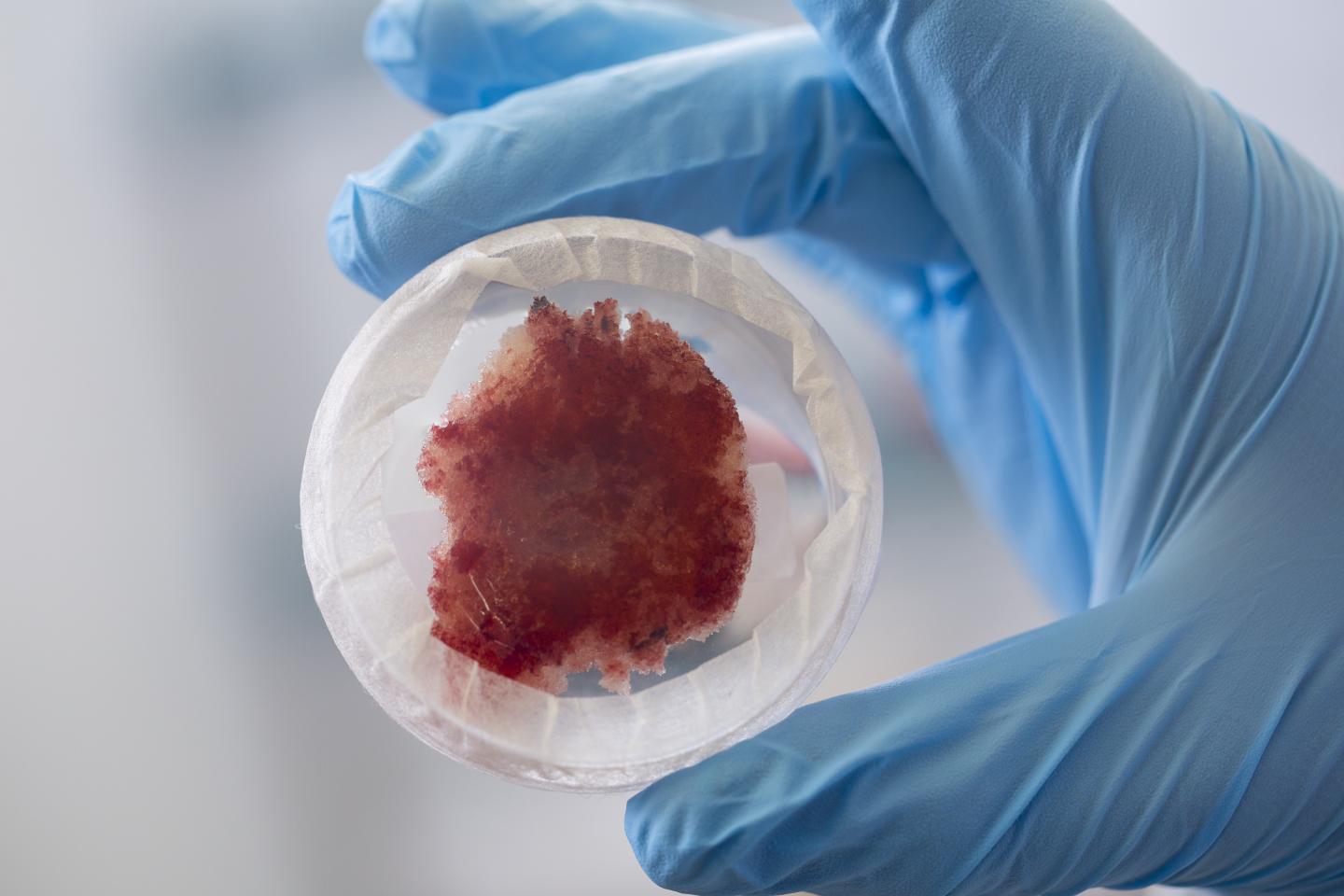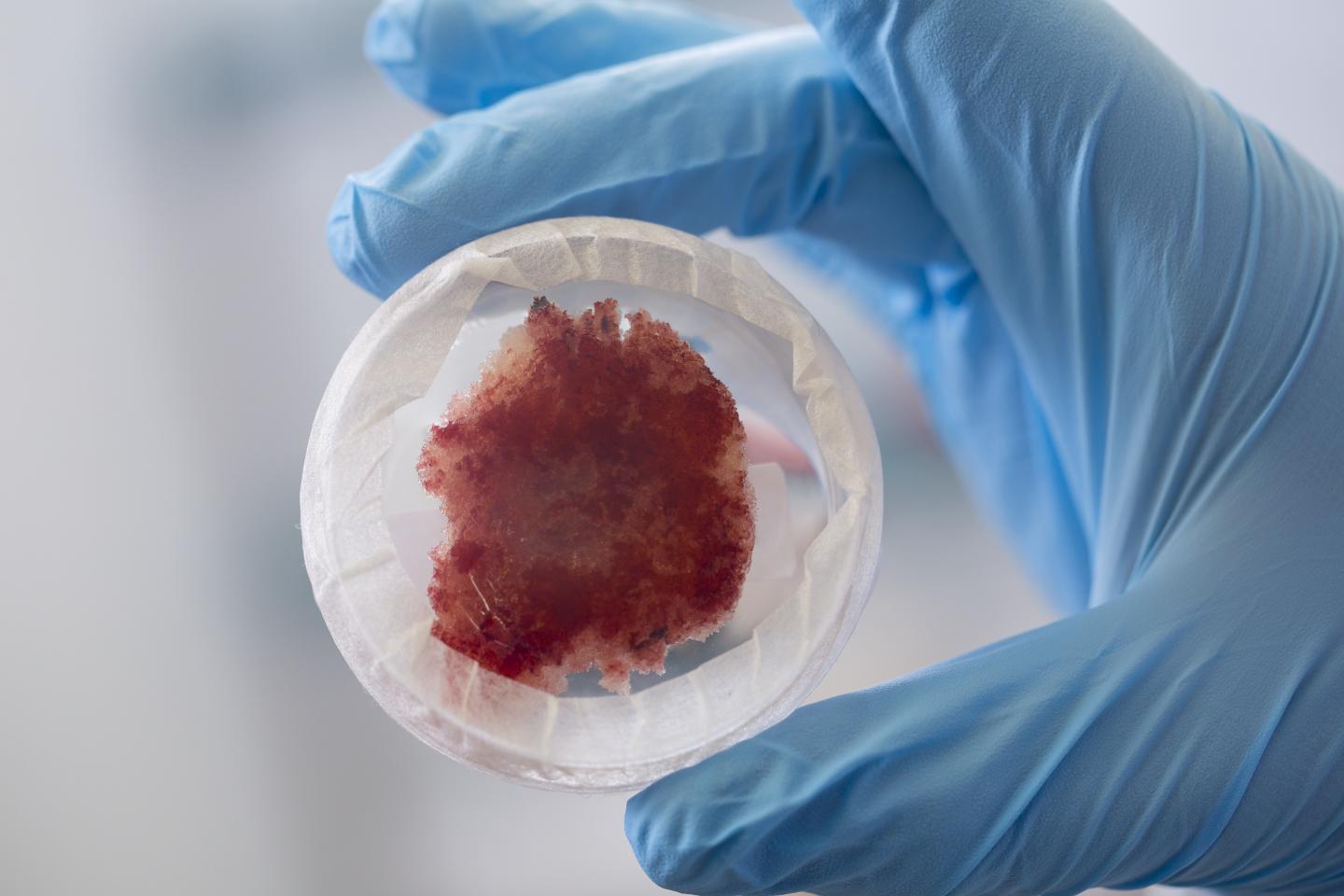
Credit: UMass Amherst
AMHERST, Mass. – A group of University of Massachusetts Amherst researchers who are stewards of the campus' plant cell culture library (PCCL) recently announced a new collaboration with the South Korean biotechnology company PCL, Inc. of Seoul and Boston, to provide users worldwide with a new technology for accurate, highly sensitive target-molecule detection in chemically complex plant samples.
Jasmine Kang, manager of PCL, Inc.'s United States operations, says the partnership with UMass Amherst is the first use of its sol-gel capture (SG Cap) technology for drug compound and other molecular screening in the country. Jennifer Normanly, department head and professor of biochemistry and molecular biology, says SG Cap is "exceptionally sensitive at the microscale. We will use plant cell extracts in multi-target screening, which hasn't been done before."
Normanly is part of a group of researchers who form the UMass Amherst BioFoundry with a goal to produce new, high-value biological molecules. Now using PCL, Inc.'s SG Cap, they and molecular biologists around the world are able to search what is believed to be the world's largest plant cell culture library for compounds to isolate and test them for use in new drugs, nutraceuticals, flavors and oils, for example.
Normanly says, "The PCCL can facilitate a range of research inquiries with applications in pharmaceutical sciences, agricultural biotech, materials sciences and biofuels. Discovering new molecules and the genes that encode them will facilitate metabolic engineering and synthetic biology efforts in both plants and microbes, leading to new bioprocesses for supplying natural products."
Kang explains that PCL, Inc. already uses the SG Cap for assay optimization and other applications and sees its partnership with the campus as a step in launching SG Cap-based multiplex screening worldwide. She says, "UMass Amherst has a great library of plant cell cultures. Upon successful completion of this pilot experiment, we will expand SG Cap-based screening to other partners and applications."
She says the company has used SG Cap for high-throughput blood screening for infectious diseases, as a portable diagnostic system for influenza and cancer, and as a multi-target screening system, now the basis of the campus collaboration.
The SG Cap platform is an immobilization technique that can screen thousands of promising new molecules and study their interactions with other compounds. For example, researchers looking for natural compounds that have potential as new drug therapies need a screening technique to identify those targets, Normanly points out.
"That's where we come in," says Kang. "Our proprietary immobilization platform prints target molecules in highly concentrated 3D gel spots and retains their native conformation, resulting in much higher sensitivity during detection. Also, our sol-gel is size exclusive so it captures only the molecule of interest, at a specific size, and any non-specific material is washed away, resulting in superior specificity. Our sol-gel spots can be printed on untreated surfaces, making it a versatile detection tool."
Previous methods required users to alter the molecules and/or surface to attach molecules to a glass slide, but PCL, Inc.'s technology bypasses this step, she adds.
In support of the PCCL, Normanly and her colleagues recently received a three-year, $315,948 grant from the National Science Foundation's Collections in Support of Biological Research program to improve and sustain it and make it available at cost for researchers globally.
Valued at $1 million, the PCCL is housed in the campus' Life Sciences Laboratory building. Normanly and colleagues Li-Jun Ma and Tristram Seidler collaborate on the grant, which aims "to preserve the collection in a way that is sustainable for the long term, and to streamline the way it is maintained, making it available for a nominal fee to academic and industry researchers around the world. We will charge just what it costs us to maintain and generate the material," she says.
"As far as we know, this is the largest collection of plant cell cultures in the world, with samples from 2,200 species. It's a tremendous resource for scientists internationally," Normanly notes. With the grant, BioFoundry member Sergey Savinov, extension professor of biochemistry and molecular biology, will extend cryo-preservation of the collection.
BioFoundry member Elizabeth Vierling, professor of biochemistry and molecular biology adds, "One reason the PCCL is so exciting is that it's an amazing opportunity for training students in state-of-the-art, high-throughput screening techniques. They can learn how to extract and characterize the activity of natural plant compounds and may obtain publishable or even patentable results."
Normanly says, "We already have many collaborations on campus and off, with researchers screening for compounds with activity against human and plant pathogens such as trypanosomes, fungi from the Fusarium genus and bacteria that are the causal agents in tuberculosis and citrus greening, a devastating disease of citrus crops in the southern U.S. We have close to 10 groups on campus who have expressed interest in using this resource for very different projects, and every day we hear about new ways of using the PCCL. The possibilities are limitless."
###
Media Contact
Janet Lathrop
[email protected]
413-545-0444
@umassscience
http://www.umass.edu
############
Story Source: Materials provided by Scienmag





